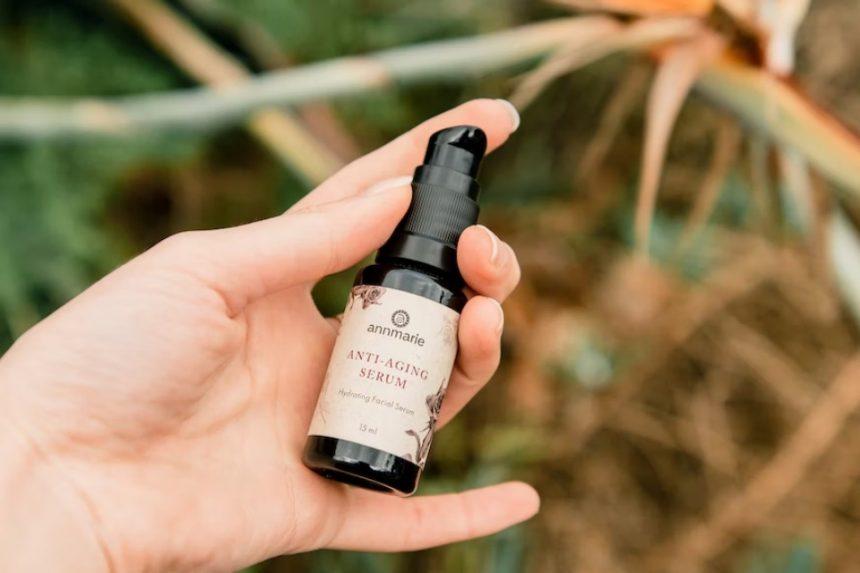Face serums are essential skincare products for anyone looking to improve the appearance and health of their skin. These concentrated formulas contain a higher concentration of active ingredients than other products, making them an ideal choice for targeting specific skin concerns. Whether you’re looking to reduce wrinkles, brighten your complexion, or hydrate your skin, face serums can provide a quick and powerful solution. However, with so many products on the market, it can be difficult to know which one is right for you. In this article, we’ll explore the benefits of face serums, as well as provide tips on how to choose the right one for your skin type and needs.
What are face serums?
Face serums are concentrated formulas that are applied to the skin after cleansing. They’re similar to face oils in the sense that they’re lightweight and easily absorb into the skin, leaving it feeling hydrated and soft. However, unlike face oils, serums are formulated with a higher concentration of active ingredients that are designed to target specific skin concerns. In most cases, serums also have a higher price point than typical skincare products like moisturizers, face masks, and cleansers. It’s important to keep in mind that some serums may be too concentrated to be applied directly to the skin. Typically, serums are used after cleansing the face and applying toner. This can be done either by applying the serum to your hands, and then gently patting it into your skin, or with the use of a facial spritz.
1. Benefits of using face serums
Face serums provide a high concentration of active ingredients that can help improve the appearance and health of your skin. Whether you’re looking to reduce wrinkles or brighten your complexion, these products can be a quick and effective solution.
Reduce wrinkles: Face serums can help reduce the appearance of wrinkles by hydrating and plumping the skin. This action is particularly beneficial around the eyes, where wrinkles tend to appear first.
Brighten your complexion: Some face serums are designed to promote a brighter complexion. These formulas typically contain ingredients like vitamin C and kojic acid, which work to brighten the skin’s appearance by inhibiting the production of melanin, a pigment responsible for the darkened colour of the skin.
Hydrate your skin: With dry skin being more prone to the development of wrinkles and other signs of aging, hydrating your skin is essential to healthy and youthful-looking skin.
Improve the texture of your skin: Face serums are often formulated with ingredients that promote the collagen production within the skin, as well as help to break down and remove dead skin cells. This action can help improve the texture of your skin, leaving it looking and feeling smoother and healthier.
Protect against environmental damage: While it’s important to wear sunscreen and avoid the sun to protect your skin against visible signs of aging, damage from the environment can occur year-round, even when you’re indoors. – Promote cell regeneration: Face serums are great for promoting the natural process of cell regeneration, which is essential for healthy and youthful-looking skin.
2. Different types of face serums
– Anti-aging serums: Anti-aging serums are designed to reduce the appearance of wrinkles and other signs of aging on your skin. These formulas often contain ingredients like retinol and peptides that promote collagen production, and help to plump and hydrate the skin.
Brightening serums: Brightening serums are designed to promote a brighter complexion by inhibiting the production of melanin, a pigment responsible for the darkened colour of the skin.
Hydration serums: Hydration serums are formulated with ingredients that help to hydrate and soothe the skin, leaving it feeling soft and smooth. – Skincare serums: Skincare serums are versatile products that are formulated to promote general skincare, as well as address specific skin concerns.
Vitamin serums: Vitamin serums are formulated with high concentrations of vitamins and other essential nutrients that are beneficial to the health of your skin, including B vitamins, vitamin C, and retinol.
3. Targeted benefits of using face serums
While face serums can provide a range of benefits for your skin, the specific formula you choose should be based on the skin concerns you’re hoping to address. By knowing what you’re targeting, you can more effectively use face serums to achieve the results you’re hoping for.
Anti-aging: Face serums designed to reduce the appearance of wrinkles are often rich in retinol, peptides, and other ingredients that promote collagen production.
Brightening: Brightening serums typically include vitamin C and kojic acid, which help inhibit the production of melanin.
Hydration: Hydration serums are formulated with humectants and emollients that help to attract water to the skin, and seal in existing moisture.
Skincare: Skincare serums are formulated with ingredients that promote general skincare, including antioxidants and essential nutrients.
Vitamin: Vitamin serums are often rich in vitamins, nutrients, and antioxidants that promote the health of your skin, as well as protect against environmental damage.
4. Ingredients to look for in face serums
Vitamin C: Vitamin C is a powerful ingredient for promoting the health of your skin. Not only does it help protect against environmental damage, but it also encourages collagen production, and helps to brighten and hydrate the skin.
Vitamin E: Vitamin E is a powerful antioxidant that is beneficial to the health of your skin. This ingredient can help to reduce the appearance of wrinkles and protect against signs of aging.
Retinol: Retinol is an ingredient that can help promote collagen production and reduce the appearance of fine lines and wrinkles.
Hyaluronic acid: Hyaluronic acid is a natural component of the human body that is beneficial to the health of your skin. It’s often used in skincare products to help hydrate the skin and promote collagen production.
5. How to choose the right face serum for your skin type
While many face serums are beneficial for all skin types, it’s important to note that each product is formulated with a specific set of active ingredients. As a result, it’s helpful to select a face serum that is targeted toward your specific skin concerns. When choosing a face serum, it’s important to pay attention to both the product’s ingredients and the formula’s concentration. For example, an anti-aging serum that contains retinol may be a good option for those with sensitive skin, but it would be too strong for those with dry skin. When choosing a face serum, it’s also important to keep in mind your skin type. For example, those with oily skin should avoid products that are rich in emollients, as they can clog the pores. Oily skin types also typically respond well to vitamin C serums, which are formulated with antioxidants and other ingredients that help to prevent and repair visible signs of aging.
6. Tips for using face serums
There are a few things to keep in mind when using face serums. First, it’s important to remember that these products are concentrated formulas, so you only need to use a small amount.
pply serum after cleansing: It’s recommended that you apply face serums after cleansing and toning your skin. This allows the formula to penetrate the skin and provide the maximum benefits. It may also be beneficial to apply the serum before your moisturizer, which can help lock in the formula’s ingredients.
Use eye creams: While certain face serums can be applied to the eye area, it’s best to apply an eye cream after cleansing, and before applying your face serum.
Avoid sun exposure: While some face serums may provide some protection against UV damage, most products are not formulated with high enough concentrations. As a result, it’s important to always wear a daily sunscreen to protect your skin against visible signs of aging.
7. Face serum myths
Face serums are too expensive: While a face serum is typically a more expensive product, it’s important to keep in mind that you only need a small amount each day, making the product last a lot longer than you may expect. – Face serums are a waste of money: Face serums are formulated








